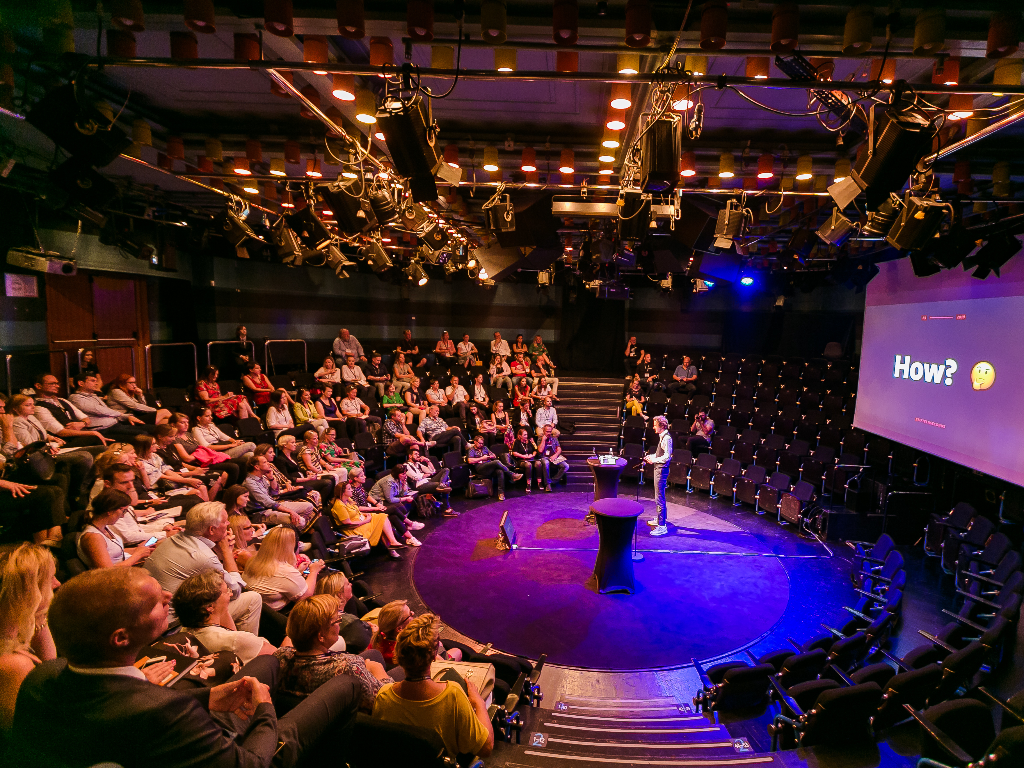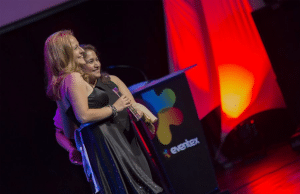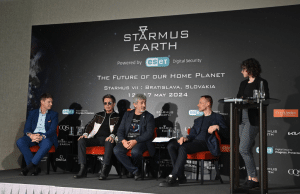Have you ever organised an event with excellent speakers and an international audience, paying attention to every detail before, during and after the event, but something was just off and you could not put your finger on it? The discussions were not as lively as you would have expected them to be, there were no bustling breaks or networking, and the participants left soon after the official meeting was over with little to no engagement? The problem might be the language.
Speaking and listening
Opting for multilingual events unlocks the potential for meaningful discussions and fruitful exchanges which increase participant satisfaction, improve engagement and even lead to new collaboration opportunities. Evidence shows that prolonged listening to presentations in a foreign language requires high levels of concentration and is often very tiresome, causing the listeners’ mind to wander off.
For speakers, addressing the audience in a foreign language might be challenging, especially if they need to improvise at any given point. An old adage says that, in a second language, we say what we can, while in our mother tongue, we say what we want to say.
Speaking in a mother tongue gives speakers the possibility and flexibility to fine-tune their message and focus on delivery. Making an address in a second language, conversely, requires speakers to focus on proper pronunciation or emphasise just the right word, not to mention extensive practice which is by no means a guarantee for successful and engaging delivery.

Efficient communication
Conference interpreters ensure smooth communication by transferring not only words from one language to another but rather the overall message, intent and energy with which the speakers address the audience at a certain moment. Unlike machine captioning or machine translation which often elicits laughter if not devastating misunderstandings, interpreters provide efficient communication. It warrants more meaningful and engaging debates that later often spill over into other conversations and even open new prospects.
By engaging interpreters and using their services, event organisers allow speakers to freely address the audience, and the audience to ask questions and comments they want to ask and not those they are able to muster in the heat of the moment. As a former German Chancellor famously said: If I’m selling to you, I speak your language. If I’m buying, dann müssen Sie Deutsch sprechen.
Interpreting at online events
The future is uncertain, even more so than usual, but one thing is clear: the online/hybrid model of events is here to stay. The organisation of online/hybrid events has an incredible potential of reaching even larger audiences, especially when well-planned and managed with attention to detail.
Online settings do not pose an obstacle to multilingual events with interpretation. Like in a conventional meeting, in hybrid events to interpretation can be provided on-site by using standard interpreting booths. If the event is conducted fully online, the interpreters usually work from a dedicated interpreting hub.

Multilingual conferences ensure inclusiveness and promote diversity. Conference interpreters might just be the secret ingredient you need to have more efficient, meaningful and engaging events – in person or online.
The Slovene Association of Conference Interpreters (ZKTS) unites highly trained and respected interpreting professionals. Contact us if you need advice about different aspects of organising a multilingual conference or about conference interpreting.














